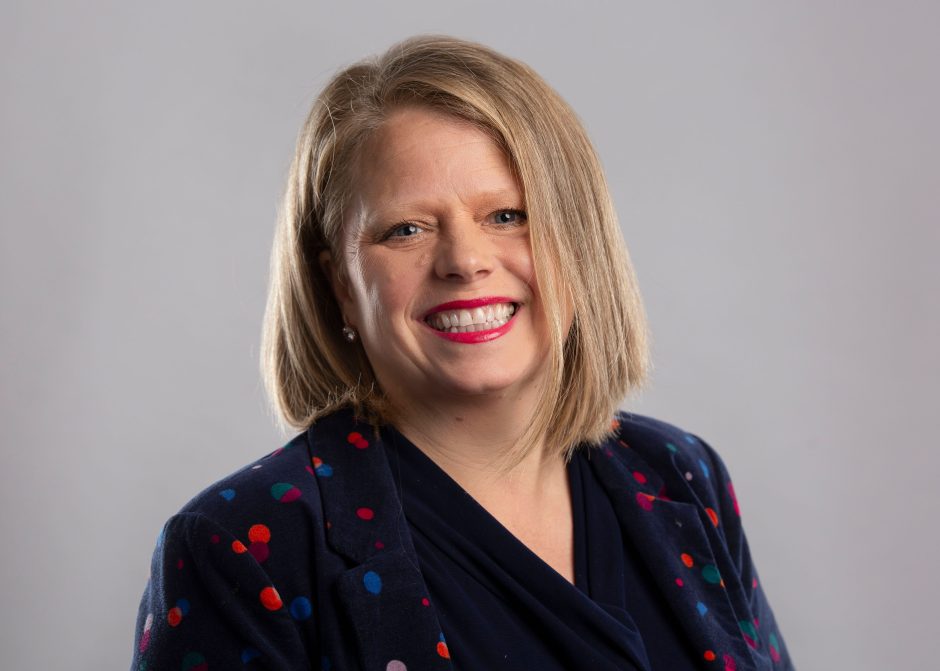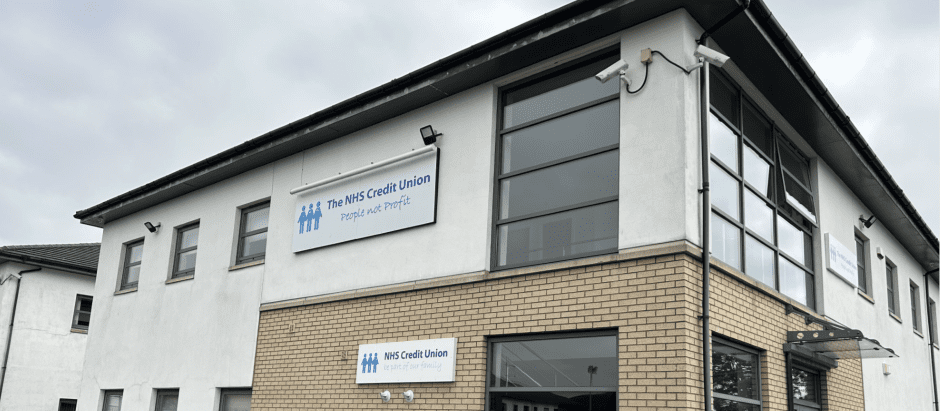One in six women in the UK has experienced economic abuse by a current or former partner, according to a 2020 report by Refuge. While the figure is staggering in itself, it does not tell the full story. A legally recognised form of domestic abuse, economic abuse occurs when someone – such as a partner or former partner – controls how a person makes or spends money, or other areas of their life, including housing, food and employment. It usually occurs alongside other forms of abuse: women who experience it are five times more likely to experience physical abuse.
One of the organisations campaigning to transform responses to economic abuse is the charity Surviving Economic Abuse, which has recently worked with Glasgow-based NHS Credit Union to raise awareness about economic abuse.
A study by the Home Office found that women who cannot find £100 at short notice are 3.5 times more likely to experience domestic abuse. And research by SEA’s Economic Justice Project found that 95% of survivors of domestic abuse experience economic abuse. Of those, 60% have experienced at least one form of coerced debt.
While financial abuse refers to the control, exploitation or sabotage of money and finances, economic abuse is the broader control, exploitation or sabotage of money, finances and economic resources, such as food, transport and accommodation.
With 84% of its members being women, NHS Credit Union aims to make a difference by enabling them to recognise the forms of economic abuse and take steps to tackle it
The credit union devised a new confidential service, Safe Harbour, after realising that the degree of confidentiality some women were asking for was potentially linked to economic control and domestic abuse.
CEO Elaine Rae says some women did not want their partners or their sons to know they had a credit union account, while others wanted to open accounts that were not visible or to be contacted at work only. This prompted the credit union to develop a service to help them take back control of their money and their lives. The first step was bringing in Scottish Women’s Aid to deliver training on economic abuse to the credit union’s staff.
“We talked about how often this goes under the radar, how dangerous it is for women not to have access to help and what stops women from leaving dangerous, violent relationships,” says Rae, who knows all too well the impact domestic abuse can have. Her mother was murdered by the man she was in a relationship with after being in a domestic violence situation.
“It was a personal issue for me to be able to help women get out of those situations,” she adds, “and recognise that misogyny, domestic violence and domestic abuse are a global issue. One in three women in the population in Scotland are impacted by domestic violence and if 84% of our membership are women then they are going to be impacted by that.”
These figures were revealed in a report commissioned by Scottish Women’s Aid for YWCA Scotland, which found that 36% of young women had been in an intimate relationship with someone who harmed them physically or emotionally.

In addition to teaching female staff to identify economic abuse, whether at home or among members, the training started a conversation with male colleagues, to ensure their support and challenge any potential preconceptions they might have about domestic abuse.
Rae realised the credit union had to support staff as well as members and adopt a zero-tolerance approach. “If members ask for a safe harbour service,” she says, “we will immediately go into a different way of working, a higher level of confidentiality, higher levels of understanding and compassion about your circumstances – or understanding that any action we take may put you into a dangerous situation.”
The credit union has launched a dedicated webpage with information on the signs of economic abuse, an escalation pathway, contact details for support organisations, and links to grants, financial help and debt consolidation advice. The page was designed in collaboration with SEA and Scottish Women’s Aid.
Only a tenth of those accessing the page so far have used the service. “It can take multiple attempts before victims feel able to be honest with themselves,” says Rae. Safe Harbour is part of a longer-term strategy on economic abuse, with awareness-raising just a first step. Staff will receive training on a regular basis, with the next session due in six months.

Research suggests that domestic abuse disproportionately affects women. Police recorded 64,807 incidents of domestic abuse in Scotland in 2021-22, with 81% of incidents involving a female victim and a male suspected perpetrator. And according to SEA, one in five UK women experiences financial abuse compared to one in seven men.
“Predominantly, research and experience shows this is an issue for women, but any other group will receive the same service,” says Rae.
Every member who contacts the credit union and mentions the words “Safe Harbour” or the violence at home help signal is automatically switched to the confidential economic abuse service. So far, it has been used by women and one non-binary person.
“The staff are really positive about it,” says Rae. “They said it has been a game changer for them – they now feel they have the tools that they need.”
Social media reaction has also been positive. “We have had no negative, aggressive, or misogynistic comments so far,” she adds, “but we may come across that kind of framework from people who may well be abusers themselves or have not considered why they have a certain set of views. We make no apologies for taking a stance on gender-based violence.”
With the launch of Safe Harbour, the credit union hopes to contribute to the Scottish government’s Equally Safe agenda to prevent and eradicate violence against women and girls. The initiative also falls in line with a new Consumer Duty which takes effect on 31 July, setting higher expectations for the standard of care firms give consumers.
In February, SEA released a briefing to help financial service firms understand Consumer Duty and respond to economic abuse. Measures include considering how accessible it is to obtain credit online with no human interaction; setting up extra security questions and safe words when there are known issues of domestic
abuse; having specialist teams in place to provide support to survivors; and training staff to identify economic abuse and respond adequately to disclosure.
Rae, whose credit union has taken these suggestions on board, says financial service providers need to see “the bigger picture” and employ experts to deliver training: “If you don’t understand that coercive wheel of power then you’re not understanding that financial abuse doesn’t sit in a vacuum, it’s part of a bigger picture of power and control and coercive behaviours, of a domestic situation or relationship where there is the threat of violence, even if it’s emotional violence.
“The challenge for people who have just picked up on financial abuse is have they gone far enough?”
Safe Harbour is not an “add-on”, Rae insists, but an “umbrella” overarching all of her credit union’s products. “What you’re going to get is a response that recognises your circumstances and takes account of them whenever you’re trying to access our service. Whether it’s a loan product, a saving product, a credit control type of product, we will take into account your specific circumstances.”
On 24 November, NHS Credit Union marks its 25th anniversary with the launch of a charitable foundation to support its work and members, particularly those in difficult circumstances.
Judy Ferguson, national training coordinator at Scottish Women’s Aid, says it was important to speak to NHS Credit Union about economic abuse as a form of domestic abuse.
“It is the first type of abuse that somebody experiences and they may not realise this,” she says. “Most people still think of domestic abuse as something that is physical, that involves elements of violence.”
Most women her organisation supports are threatened with violence adds Ferguson, but perpetrators do not always resort to that. Economic abuse goes beyond checking receipts and can involve taking up debt in the victim’s name or limiting their access to resources or their ability to secure or maintain work.
“Because they’re a credit union, and because they are working with people who may be coming and saying ‘I need to borrow some money. I’ve got some debts,’ it was really important for them to understand what some of the red flags might be,” she says.
Ferguson adds that more credit unions are engaging with the issue and reaching out to organisations such as hers to work together to recognise and stop abuse, linking victims to specialist support where needed. Scottish Women’s Aid is working to raise awareness about coercive debt so that victims who have their signatures forged or are coerced into taking credit card agreements do not have to pay the debt. Another campaign is to have tenancy agreements transferred to victims’ names, when these had been agreed by perpetrators but paid by the victims.

For credit unions looking to help members, Ferguson says the first step is to let people know that economic abuse exists using their communication channels and promotional campaigns. Credit unions can then let members know that they offer confidential support. The next step is to train staff to be alert and aware of certain red flags.
Several credit unions are exploring how they can better support members affected by domestic abuse. First Class Credit Union in Glasgow recently got in touch with Scottish Women’s Aid to explore opportunities for collaboration.
Likewise, Dublin-based Capital Credit Union partnered with Women’s Aid Ireland last year, with staff receiving specialised training to recognise signs of abuse, respond in a supportive way and signpost their members to the Women’s Aid 24hr National Freephone Helpline. The credit union also led an awareness campaign in all its branches, directing victims to Women’s Aid in an accessible and discreet manner. “
As a credit union, we are very aware of our role in the community,” said CEO Gerry McConville at the time. “We are an organisation our members can trust, and we want to recognise this by ensuring they get the support they need. Women’s Aid provides amazing services to those in need, and we want to facilitate this. As the first credit union involved in such a scheme, I hope this campaign inspires other organisations in the financial services sector.”
Women’s Aid Ireland CEO Sarah Benson added: “We know that with the right information credit union staff can make a difference in someone’s journey to safety. We hope that women who are CCU members, who are experiencing abuse, will call the Women’s Aid 24hr National Freephone Helpline for information, support and referral to local domestic violence services, when needed.”
More recently, Irish finance minister Jennifer Carroll MacNeill, wrote to Safe Ireland, Men’s Aid and Women’s Aid to ask for their input on measures to tackle financial abuse.
Credit unions can play a key role in addressing coercive control, she thinks, due to their being grounded in their local communities.
Commenting on this approach, the Irish League of Credit Unions told the Irish Examiner it was “supportive of future conversations and engagement that look to provide further detail around the possible assistance available to those that are vulnerable”.

